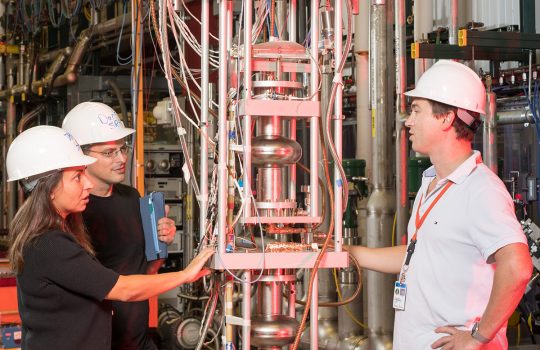Chicago Quantum Profile: Farah Fahim
From the Chicago Quantum Exchange, May 18, 2020: Farah Fahim is the deputy head of quantum science at Fermi National Accelerator Laboratory. For much of her career, she developed low-noise, high-speed reconfigurable pixel detectors for high-energy physics and photon science. She recently pivoted to control and readout electronics for quantum systems, and says, “The future is bright.”





